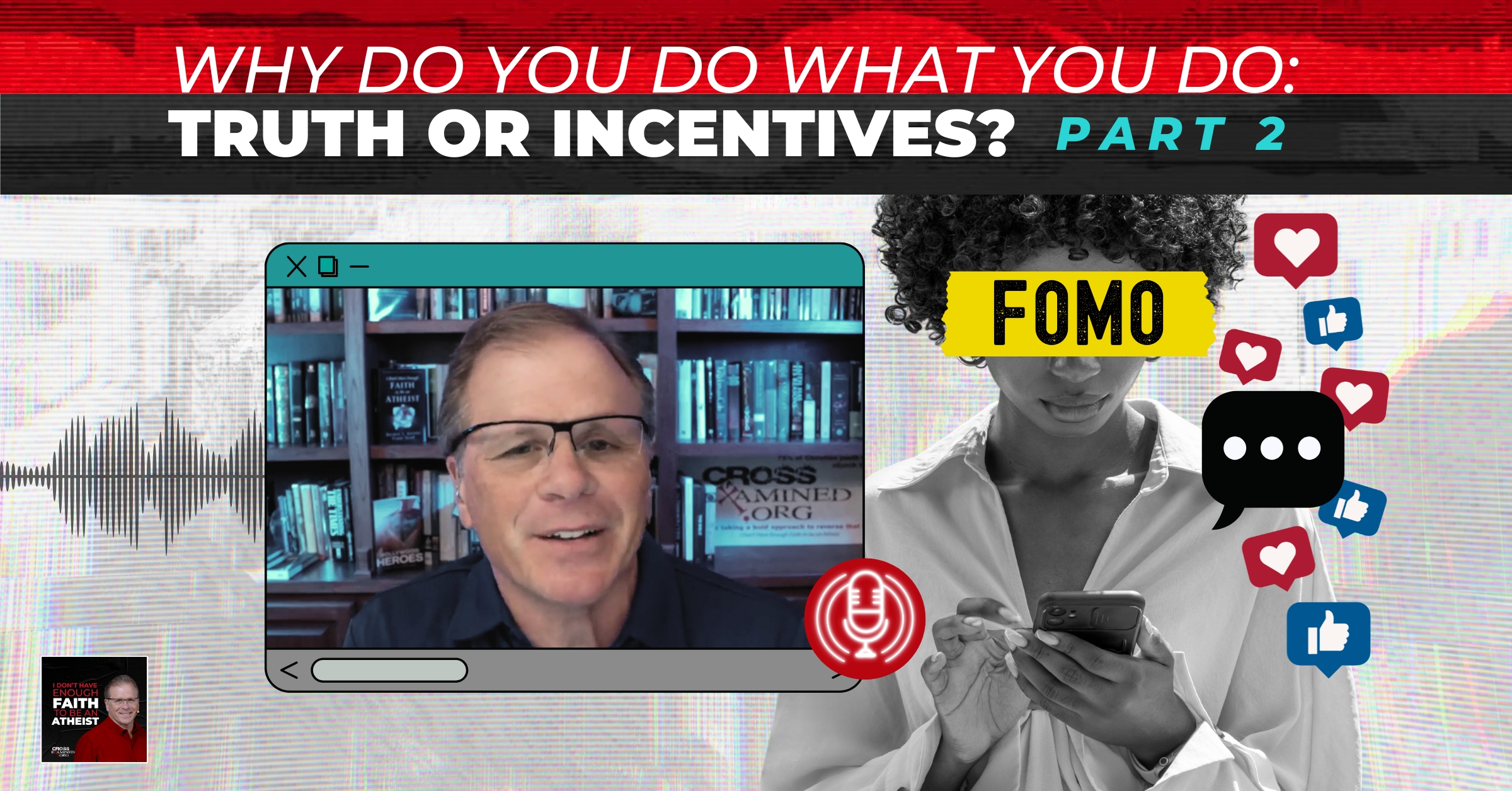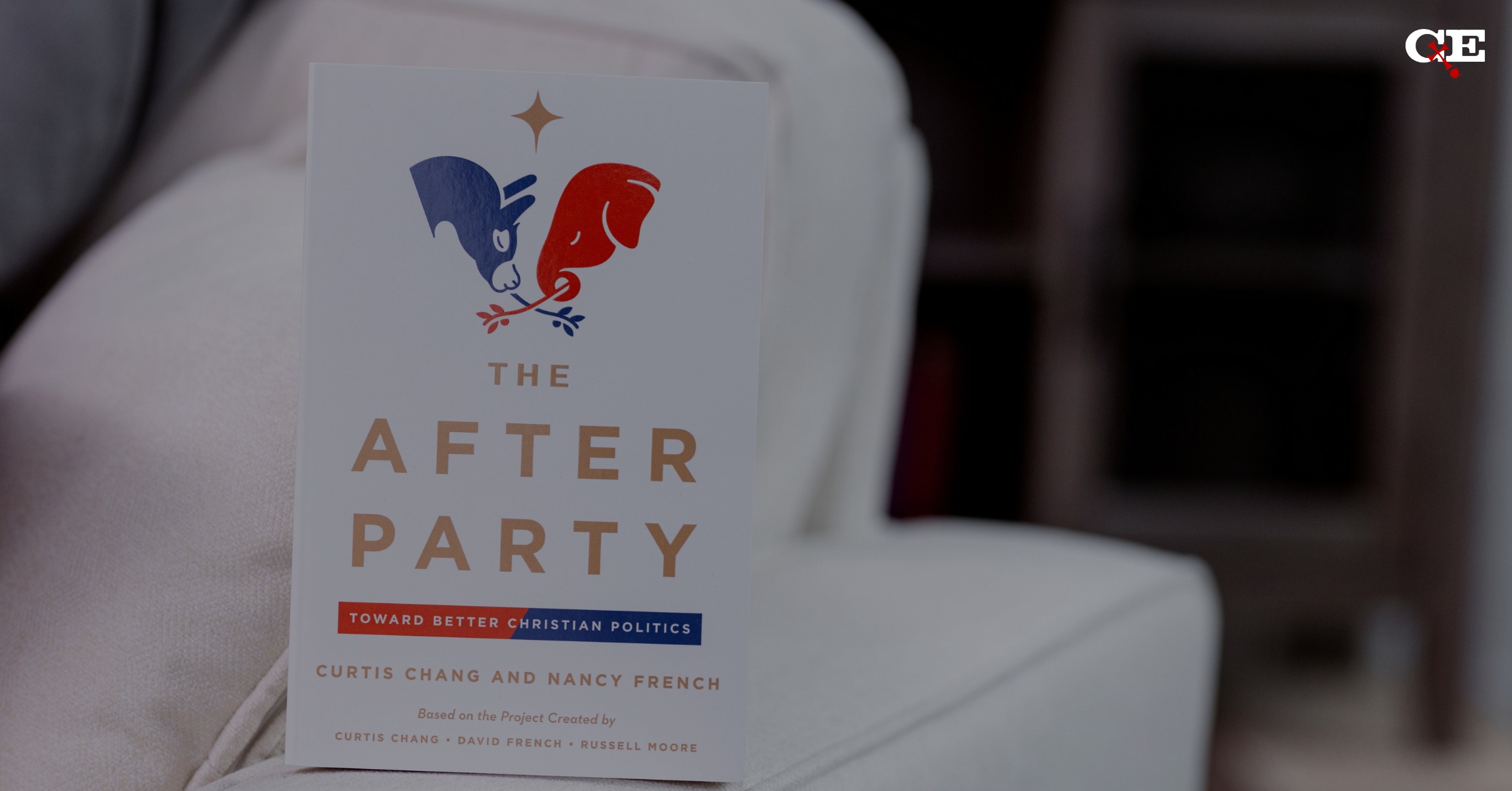Ten Philosophical Challenges Christian Students Face at Secular University
The Christian student who attends a secular university will encounter very recognizable challenges to his/her Christian faith. As a professor who has taught in a secular university for 24 years, attended faculty meetings where professors discuss how to deconstruct the faith of Christian students, and seen firsthand the animosity administrators have toward Christianity, I am giving you an inside look at the workings of the secular university.

Did God Really Say . . . ?
I have outlined these ten challenges to illustrate the original temptation in order to show that they follow a similar strategy and that little has changed. “Did God really say? . . . You will not surely die” (Gen. 3:1). God knows the day you eat you will be as God knowing good and evil. The Tempter states a conclusion: you will not surely die (Gen. 3:5). This directly contradicts what God said.
Next, the Tempter gives an argument to support the conclusion. His argument besmirches the character of God (God knows you will be like him) and says you will not die because you will be like God. The specific way you will be like God is by knowing good and evil. God knows good and evil as the creator: he determines what is good for a human by creating them with a specific nature. Humans can never know good and evil that way. But, in order to believe God lied, they must put themselves in the place of God. This act of autonomy[1] makes them their own gods.
This same strategy is at work in each of these Ten Challenges that the Christian student will face at the secular university. They question what God said, besmirch God’s character, and teach the student to be autonomous.
The Enemy’s Strategy: Question what God said, insult God’s character, and teach the student to be a law to themselves.
In my CrossExamined podcast Frank and I discuss these steps. You will hear that we keep returning to the law of non-contradiction and self-referential absurdity. Sin is a contradiction. It doesn’t make any sense. How can the intellectuals of our age miss this?
An education should make you wise by teaching you to fear the Lord and shun evil.
Instead, current university education teaches students that sin has no consequences because they can determine what is good and evil. It presents self-contradictory philosophies as if they will bring us happiness and meaning. It tells us to go out and change the world with this nonsense.
It is a new dark age of the mind in which the secular intellectual’s only conceptual framework is “power” and they spend their time praising the basest and most perverted human behaviors. It perfectly follows the decline into debauchery outlined by the Apostle Paul in Romans 1.
Ten Challenges For Christians Going to Secular University
Number 10: Academic Skepticism.
Knowledge about the “big questions” is not possible. There are only different opinions. Each opinion is equal to every other. The biggest mistake is to think your opinion counts as knowledge, which is what Christianity does. With this comes Fideism, the teaching that faith just means “blind belief.” This is a denial that God is clearly revealed in all his works of creation and providence.
Number 9: Religious and worldview pluralism.
All religions are equal. The only problem is when one religion claims to be the only way. Comparative religion says that each religion was invented to preserve power. This can be deceptive in that it seems pro-religion, but it is only pro-religion to be anti-Christian. The student is taught to be tolerant of everything except not to tolerate exclusive truth claims. This is a denial that the only way to be restored to God is through the vicarious atonement of Christ.
Number 8: Scientism.
If knowledge is possible, it is due to naturalism that claims only material causes can explain the world. The creation does not reveal the creator. Humans are mere animals, advanced, but only animals. This is also coupled with climate change claims about the need for a centralized state to take away technology that pollutes. The student is told that the end of the world is near unless human civilization is stopped. Humans are viewed as evil and a cancer on the world. This is simple atheism. It is a denial of God the Creator, who sovereignly rules over the material world and created man in his own image to have dominion.
Number 7: Pragmatism.
What works is what is true. This is the same as saying, “What satisfies is what is true.” Universities often encourage their students to get involved in community outreach, which is reduced to having a pragmatic benefits for their community. “What satisfies” is a statement about what that person views as “good.” Pragmatism denies any “highest good.” It makes education about (1) being a contributor and not about (2) learning to fear God and develop in wisdom and godliness. This is a denial that the purpose of education is to increase our godliness.
Number 6: Higher Criticism.
The Bible was composed merely by men, re-edited through the centuries, with the purpose of preserving power and the patriarchy. This undermines the idea of sola scriptura by taking away the Bible. There is no “historical Jesus.” There are Gnostic Gospels that were kept out for political purposes. This is a denial that we need redemptive revelation and a denial of God’s work to preserve the Bible he inspired.
Number 5: Existentialism.
There is no essence or human nature. There are no universals. There is only personal experience. Each person makes their own meaning. This is used to promote infinite genders and “finding your own identity.” The world, in itself, is without meaning, and meaning is whatever we say it is. This is a denial that the world is full of meaning because it reveals God.
Number 4: Cultural Relativism.
Foucault has been cited 1.4 million times, 70% more than any other author in history.[2] He teaches that crime and insanity are culturally determined by the powerful to keep power. Students are told they only think the way they do because of how they were raised. This is used to promote political agendas like “Limits on immigration are immoral!” This is a denial that there is a moral law that applies to all humans at all times.
Number 3: Marxism of various kinds.
According to Marxism, all of history is a conflict between the oppressors and the oppressed. At first, the target is white men, but soon, you realize that the real enemy is Christianity. The last 500 years have been Christian oppression of women, slaves, the colonized, racial minorities, sexual minorities, and the list goes on. This view teaches envy as a virtue and uses the problem of evil to discredit Christians. This is a denial of the providential rule of God. This one relies on the problem of evil. All evil is due to private property and can be overcome by a centralized state that redistributes wealth.
Number 2: LGBTQ+.
The homosexual movement uses Freudian tactics to convert the student to believe that there are infinite genders, that gender is whatever you say it is, that God did not create humans as male and female, and that marriage is not between a man and a woman. The story is that the young person had to repress their sexual desires, which led to neurosis, anxiety, and depression, and it was only when they could freely express their sexual desires that they found freedom and self-love. It relies on “conversion” stories and “religious experiences” to imitate Christianity. You find your identity in your basest urges. This is a denial that gender and sex are determined by God the Creator.
Number 1: Activism.
Progress toward perfecting human nature through revolution. Oppressed groups and their allies should rise up and overthrow the systematically racist, unjust system built by Christianity. Professors teach their students that the world they live in was built by white Christian men to perpetuate inequity and that the students have been personally wronged by this system. The students are told that the noblest person is the activist who protests and, when needed, burns down the cities. The student is presented with heroes who did just that. This is a secular version of the Great Commission. It is a denial of the transformative power of the Gospel.
Be Prepared
What can a Christian student do? First, know this list and be prepared. Knowing the enemy’s strategy is half the battle. Second, the next half of the battle, is being able to show why these philosophies are in error. Here are some important ways to do that:
- Know Romans 1:18-21. Be able to show it is clear that God exists so that unbelief is without excuse.
- Know why the fear of God is the beginning of wisdom (Ecc 12;13-14).
- Know why sin leads to death.
- Know why the Bible is the inspired Word of God.
- Know the Biblical Worldview of Creation, Fall, and Redemption (Gen 1-3).
- Know why vicarious atonement through the death of Christ is necessary for redemption (John 1:29).
- Know what the historic Christian church has taught (for example, the Westminster Confession of Faith as a doctrinal statement of the Reformation). Man’s chief end is to glorify God and enjoy him forever.
- Be a member of a local Bible-believing Church.
- Be involved in campus ministry.
- Have friends and family with whom you can be accountable.
Footnotes:
[1] [Editor’s Note: “Autonomy” means “self-law” and refers to being self-governed. In this context, autonomy is also an implicit rejection of God’s law and governance; it is being “self-governed” in contrast to being governed by God and His laws].
[2] [Editors Note: As of 24 September 2024 Google Scholar reports 1,409,360 citations of Michel Foucault. See, https://scholar.google.com/citations?user=AKqYlxMAAAAJ&hl=en]
Recommended Resources:
How Philosophy Can Help Your Theology by Richard Howe (DVD Set, Mp3, and Mp4)
Stealing From God by Dr. Frank Turek (Book, 10-Part DVD Set, STUDENT Study Guide, TEACHER Study Guide)
I Don’t Have Enough Faith to Be an Atheist (Paperback), and (Sermon) by Norman Geisler and Frank Turek
Counter Culture Christian: Is the Bible True? by Frank Turek (Mp3), (Mp4), and (DVD)
Dr. Owen Anderson is a Professor of Philosophy and Religious Studies at Arizona State University, a pastor, and a certified jiu-jitsu instructor. He emphasizes the Christian belief in God, human sin, and redemption through Christ, and he explores these themes in his philosophical commentary on the Book of Job. His recent research addresses issues such as DEIB, antiracism, and academic freedom in secular universities, critiquing the influence of thinkers like Rousseau, Marx, and Freud. Dr. Anderson actively shares his insights through articles, books, online classes, and his Substack.











